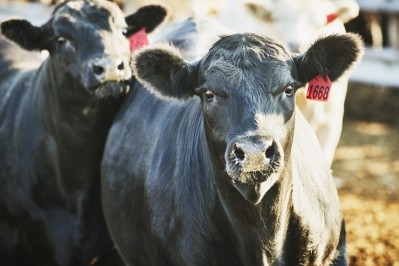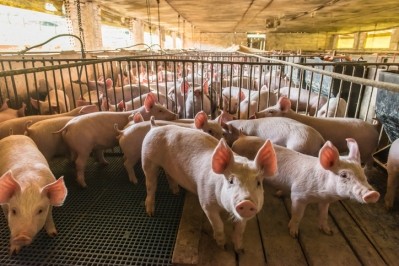DuPont launches ‘gold standard’ in phytase enzymes

The phytase enzyme will be available first in the US, Mexico and India and then eventually worldwide, pending regulatory authorizations, said the company.
When asked why there was a need to enhance Dupont’s existing phytase offering, Dr Arno de Kreij, segment leader, DuPont Animal Nutrition, told FeedNavigator:
“Phytases are widely used to improve phosphorus availability and tackle phytate’s antinutritional effects. But even great phytase enzyme performers can be improved. DuPont has long been committed to developing phytase enzymes that help producers save on feed costs and deliver on animal performance.
“Axtra PHY GOLD was developed with the ideal phytase in mind: superior bioefficacy, market-leading thermostability and improved sustainability, driving the science towards 100% inorganic phosphate free diets.”
The product also has a protective coating that provides excellent heat stability, he added.
Recent scientific studies demonstrate the product’s ability to allow formulation of inorganic phosphate-free high phytate diets, said the company.
Dr Yueming Dersjant-Li, senior scientist, DuPont, has just published two scientific papers in relation to that topic, one paper in relation to weaned piglets, and the other in relation to broilers.
Addressing the need of feed and premix producers
DuPont has been seeing a growing demand for highly thermostable phytases, both from premixers as well as feed producers, continued de Kreij.
The new phytase product outperformed other commercial phytases under a wide range of pelleting conditions, he said.
“Processing feed into pellets is known to benefit both animal performance and feed efficiency, making it by far the preferred delivery format. But not all enzymes are heat stable, which means they are rendered inactive by the pelleting process. Some feed producers are using harsher pelleting conditions to reduce potential pathogens in the feed, in particular Salmonella.
“Our pelleting trials have shown that our dry thermostable product, sets a new benchmark in pelleting performance, outperforming every other phytase currently on the market under a wide range of pelleting conditions.
“Furthermore, our liquid product can be dosed straight into the feed mixer under milder conditions. This opens a range of new possibilities for our customers,” said the DuPont representative.
Phytate is the main storage form of phosphorus in all grains, which represents the basis of most plant-based diets used in animal production. Phytases are enzymes that help break down phytate, allowing better absorption of phosphate and reducing or removing the need for addition of phosphate supplements in poultry and pig diets. The ideal phytase needs to break down phytate as quickly as possible to reduce the phytate’s negative impact. This requires an enzyme that is highly active at the low pH in an animal’s upper digestive tract.
Source: DuPont Nutrition & Biosciences













